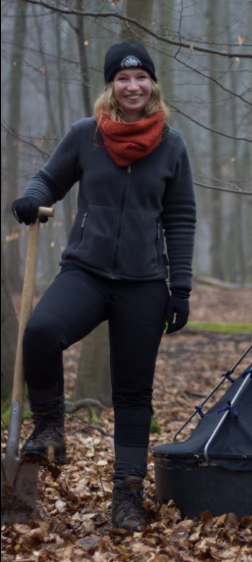Melissa Jüds
Melissa Jüds

I am a PhD student in the Animal Ecology department of Professor Scheu and part of the project LitterLinks which is conducted in the framework of the Biodiversity Exploratories. The main focus of my PhD thesis lays on the fungivory of Collembola in temperate forests.
Forest soils with their dense root system (rhizosphere) are inhabited by a variety of microbes and animals. Microbes as fungi and bacteria often live in symbiosis with plants and are of crucial importance for ecosystem processes such as leaf litter decomposition, carbon sequestration and nutrient cycling. However they also function as food resource for soil dwelling animals such as Collembola. Because of the opaque structure of soils, the identification of interactions or more precisely the food ingested by those animals cannot be directly observed.
The analysis of the molecular gut content of Collembola with fungal specific primers will help to identify fungivory as affected by forest type and land use intensity. For the analysis of the collembolan diet in different forests I will use two methods. One method is based on next generation sequencing of six Collembola species with a general fungal primer targeting the ITS gene region. This method will give information on all fungi ingested by these Collembola species in two forest types. The other method is based on the primer design of six known and most abundant fungal species (saprotrophic and mycorrhizal fungi) in the experimental plots of the Biodiversity Exploratories. With these primers it is possible to detect the presence of specific fungal DNA in the guts of many soil dwelling arthropods.
Both methods will help to investigate the trophic structure and trophic links in the fungal energy channel of soil living invertebrates, especially of Collembola.
For more information, please visit the website of the Biodiversity Exploratories.